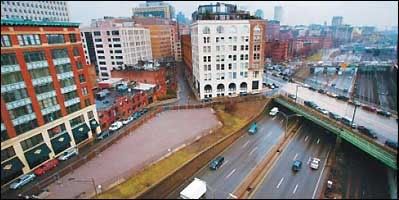BarbaricManchurian
Senior Member
- Joined
- Mar 12, 2007
- Messages
- 1,067
- Reaction score
- 65
The Boston Globe weighs in today about the Columbus Center subsidies with their "Short Fuse" editorial.
It's over a highway, no wonder it costs so much and they need a little money to start the project. This also has better public benefits then most other construction projects so a little subsidizing for the improvement of the community is something that I support.
Development: Enough with the subsidies
The proposed 35-story Columbus Center in the South End was supposed to set the future tone for air rights development above the Massachusetts Turnpike regarding height, mass, open space, and transportation links. Instead, the project is setting the tone for government giveaways. The Patrick administration has awarded $10 million to the Winn-Cassin development team to jump-start the project and may provide a $10 million loan to boot. Now the developer-friendly Menino administration wants to kick in tax-free Empowerment Zone bonds normally used to stimulate businesses in low-income neighborhoods. These subsidies are too deep. The developers already secured a favorable long-term leasing deal from the Pike for the air rights -- just $12.2 million. The Patrick administration says Columbus Center will generate hundreds of jobs. But so will the 75 other construction projects already underway in Boston. If this is the future of building on air rights in Boston, then developers should stay on the ground.
It's over a highway, no wonder it costs so much and they need a little money to start the project. This also has better public benefits then most other construction projects so a little subsidizing for the improvement of the community is something that I support.

